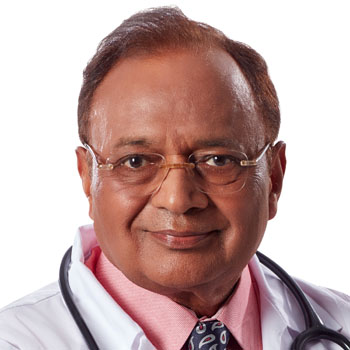March 2022 member spotlight
Deepak Kumar, MD
Specialty: Colon and rectal surgery
Medical school: Government Medical College, Amritsar India
Immediate past chair, International Medical Graduates Section (IMGs)
Past president, Ohio State Medical Association
Associate clinical professor of surgery, Wright State University, Boonshoft School of Medicine
Q: How can senior physicians help during COVID-19, especially if doctors are retired and want to return to work to work during this time?
A: Due to shortage of health care workforce, senior physicians can provide their resources in a number of ways. I am personally aware of retired critical care physicians who have volunteered to work in New York City and ICU settings. Other senior physician friends of mine have volunteered to work as vaccinators and COVID testers to relieve the burden on local health care departments and hospitals. It is quite clear that Ohio senior physicians have stepped up even though they were more vulnerable to contract COVID-19 themselves in nursing homes, hospitals and community health centers.
Q: As a physician leader, why is physician advocacy important to you? How can physicians have a significant impact outside the practice of medicine?
A: Physician advocacy is very important for the wellbeing of our communities. This needs to be at all levels of society from administration to legislators, from general public to business leaders. It is also important to prevent burnout within physicians and other healthcare providers. Senior physicians have seen negative effects of policies and practices and are able to educate and communicate to the public in multiple ways. Physicians have earned lot of respect in the community and their voices have significant impact beyond just bean counters.
Q: Was mentorship important to you during your subspecialty training and perhaps the first five to ten years of your career coming from India?
A: In July 1970, when I first came to the U.S., I landed in New York, and I had to have a chest x-ray in multiple views. When I was standing in line, I gave them the information. However, they put it in the trash and noted that this complies with the U.S. regulations. They said go, and stamped my passport. From there, I came to Cook County Hospital and was there with 40 other surgical interns. What I quickly realized though, is that only 10 of us that could go on as a resident. I filled out 150 residency applications and didn’t hear from anyone. I grabbed the bull by the horn and took a Greyhound bus to Philadelphia and Detroit. Luckily William Beaumont Hospital in Detroit, Michigan, allowed me into their General Surgery residency program and then Grant Hospital in Columbus, Ohio, in colon rectal surgery. I eventually ended up in Dayton, where I practice today. I was the first colon rectal surgeon in Dayton Ohio.
Since that time, I’ve been given my best to serve the community back. I was awarded teacher of year honors by the surgery residents. I’ve also contributed back to my community and conference center that carries both my name and my wife’s name. I also participated in political activities in Ohio to the extent as I served as an electoral vote for the president of the United States.
Q: In your busy practice, how did you develop a self-care ritual that helped you to manage stress to nourish your personal resilience and contributed to your well-being to prevent burnout?
Every three months my wife and I would go on a break for a week. We would travel, and the two of us would also take our children. I look forward to my travels around the world. This has helped me greatly, as I planned my visits in advance.
Q: Is there a particular medical interest or hobby that you have enjoyed in your personal life? What has provided you balance and enrichment, to make you a better doctor?
A: I have always loved sports, and especially loved coaching soccer to my daughters. It was a two-way street interacting with 15 other girls, and this interaction allowed me to concentrate on something other than medicine. For those 2-3 hours a week, I was not concentrating on medicine!
Contact us
Have information about SPS members doing great work? Email us at [email protected].




